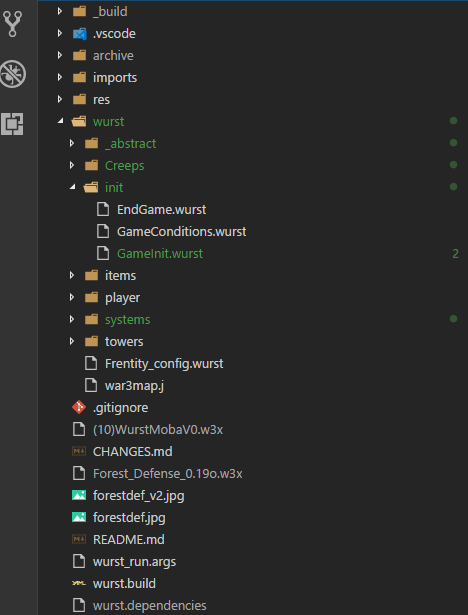- Joined
- Jan 1, 2009
- Messages
- 1,609
Wurst goes 1.29 and beyond
As the new patch has hit earlier in April, we have implemented the necessary changes to support it in our toolchain, while still keeping backwards compatibility alive.
Updates
As the new patch has hit earlier in April, we have implemented the necessary changes to support it in our toolchain, while still keeping backwards compatibility alive.
Updates
- Increased maximum class instances to 32768 to match new array sizes in 1.29+
- The new common.j and blizzard.j are now supplied by default
- Implemented vararg function parameters - functions that take a variable amount of parameters of a certain type.
- VSCode highlighting has been improved to match the language documentation, recognizing punctuation and operators
- Deprecation warnings now also show for variables
- Fixed two unusual exceptions related to extended unicode characters
- Implemented additional natives for compiletime such as timers, triggers, rects and more, enabling those to be used in unit tests.
- Modified standard units get printed into
WurstExportedObjectsagain, for easier transfer to generated objects - The operator precedence of
orin Wursts Jass parsing is now correct
- Merged over 10 awesome pull requests regarding object editing, damage detection and the new Blz natives
- Extension function wrappers for the new natives, such as effect.setColor and item.setName have been added
- Packages affected by the new 24 player capability, such as Colors, have been updated accordingly
- Fixed and unit tested several issues with typecasting and error handling












